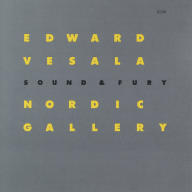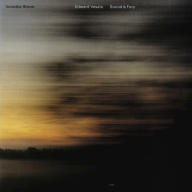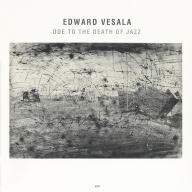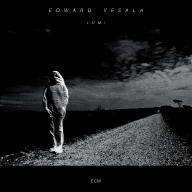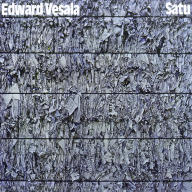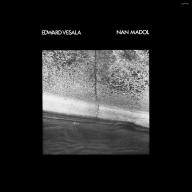Edward Vesala
from Mäntyharju, Finland
February 15, 1945 - December 4, 1999 (age 54)
Biography
Born Martii Juhani Vesala, the percussionist changed his name early in his musical career. Vesala studied music theory and orchestral percussion at the Sibelius Academy in Helsinki from 1965-1967. He played with such musicians as Eero Koivistionen and Seppo Paakkunainen during the mid- to late '60s. In 1972 he recorded Triptykon for ECM with saxophonist Jan Garbarek and bassist Arild Andersen. It would be the first of many albums Vesala would make for the German label. His long association with ECM would help establish Vesala's reputation as a world-class free jazz percussionist. During the '70s Vesala played with such free jazz and experimentally inclined musicians as Peter Brötzmann, Charlie Mariano, and Terje Rypdal. Early-'70s collaborations with such Finnish musicians as Koivistionen, Juhani Aaltonen, and Pekka Sarmanto had a strong impact on the Finnish free jazz scene. Vesala's quartet with Polish trumpeter Tomasz Stanko recorded several times from 1974-1978, including most notably Nan Madol, his first album as a leader for ECM. In 1978, Vesala formed his own record label, Leo (not to be confused with the British label of the same name headed by Leo Feigin), which released albums by European free jazz musicians (including Stanko) and Americans like Frank Foster and Charlie Mariano. In 1980 Vesala and Stanko recorded Heavylife, which featured the American musicians Reggie Workman on bass, J.D. Parran on saxophone, and Bob Stewart on tuba. In the early '80s Vesala conducted music workshops called Sound Fury. In 1984 he chose the best of his students and formed a group of the same name. Sound Fury would record four albums for ECM. Vesala's 1990 album, Ode to the Death of Jazz, was a statement in opposition to the conservative forces that had come to dominate the music. He continued to perform with Sound Fury during the '90s. He also composed for the Helsinki Philharmonic and other large ensembles. Vesala was probably the most famous of all Finnish jazz musicians. Yet by the end of his life, his music defied all categorization, fusing various ethnic idioms, classical elements, rock, microtonality, and Finnish folk music. Vesala died of heart failure in his home outside Helsinki in 1999. ~ Chris Kelsey, Rovi
Top Tracks
Albums
Videos
Close


